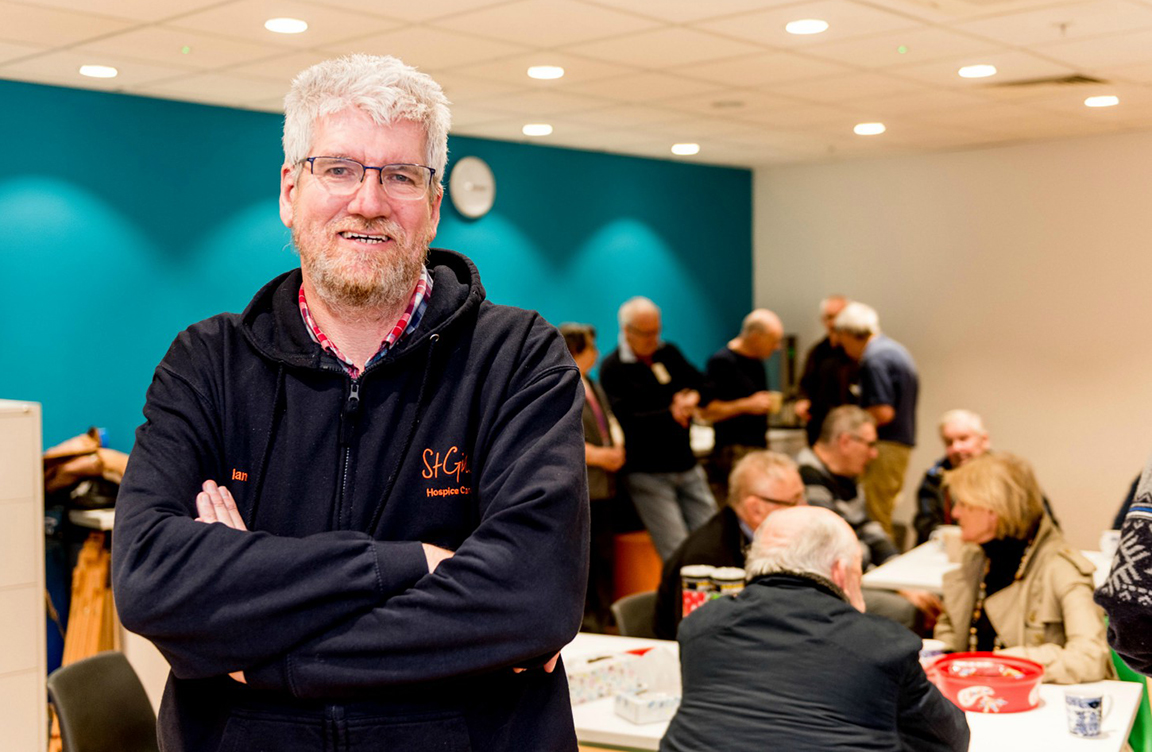Pioneering St Giles Hospice service offers virtual support to bereaved Uttoxeter families

Bereaved people in Uttoxeter are meeting online to support each other and beat isolation thanks to a pioneering service offered by St Giles Hospice.
In recent weeks St Giles has launched three virtual bereavement help points - providing information, companionship and practical and emotional support - using video-conferencing technology.
Before the COVID-19 crisis the hospice ran 14 bereavement help points at centres across the region, but these face-to-face services have had to close temporarily because of the safety measures taken to combat the spread of the Coronavirus.
St Giles Hospice Community Engagement Manager Ian Leech said the idea for the virtual help points came about very quickly after the lockdown began, and the first group was up and running within two weeks.
He said: “We knew just how important community- based bereavement help points are in providing an anchor point for people’s weeks in the days, months and years after bereavement.
“Before the closures we were seeing more than 1,000 visits every month, with help points every day of the working week across our catchment area. Offering an online option seemed the next step for existing attendees and newly-bereaved people who wanted some peer support.”
Using the online meeting app Zoom, the hospice - which has sites in Uttoxeter, Walsall, Lichfield and Sutton Coldfield - has launched two virtual help points for people who already attend groups, along with a third for newly-referred people.
“We initially spoke to the volunteers who help run our help points to ask them to help us test the technology and the format of the groups,” Ian added.
“Their willingness to embrace the technology was wonderful, particularly as we have a large number of volunteers who are over 75, and the levels of engagement really challenged people’s perceptions of what older people are capable of when it comes to technology.”
Ian said that setting up the virtual help points had been a real learning curve for staff, volunteers and group members because of the technological challenges and the need to ensure online security and privacy - but added that the initiative had been a real success at a time when bereaved people were feeling more isolated than normal.
“One of the most enthusiastic members of our group is an 89-year-old lady who has never used video conferencing before," said Ian.
“It’s important to realise that we’re not creating a replica of a BHP, we’re creating something different and it won’t be the same. For example, that moment when you come into the non-virtual room and someone makes you a cup to tea, gives you a hug, spends time listening to you, while everyone around you is talking, just can’t be replicated.
“But virtual help points also present a real opportunity for the future which we will explore, particularly around creating evening help points and reaching people who are physically isolated, ill or unable to travel.”
The bereavement help point model developed by St Giles has been adopted by a number of other hospices across the UK in recent years, and the St Giles team is already talking to a number of hospices who are keen to learn more about the virtual service.
“We’ve always been very open about sharing our experiences, whether good or bad, and sharing the learning,” said Ian. “And we’re happy to talk with other organisations about what we’ve been doing to create and maintain connections in a virtual world.”
If you would like to find out more about the virtual bereavement help points, please the St Giles Hospice supportive care team on 01543 434536.
For more information about St Giles Hospice and the expert care it provides, please visit www.stgileshospice.com
Above: St Giles Hospice Community Engagement Manager Ian Leech.
